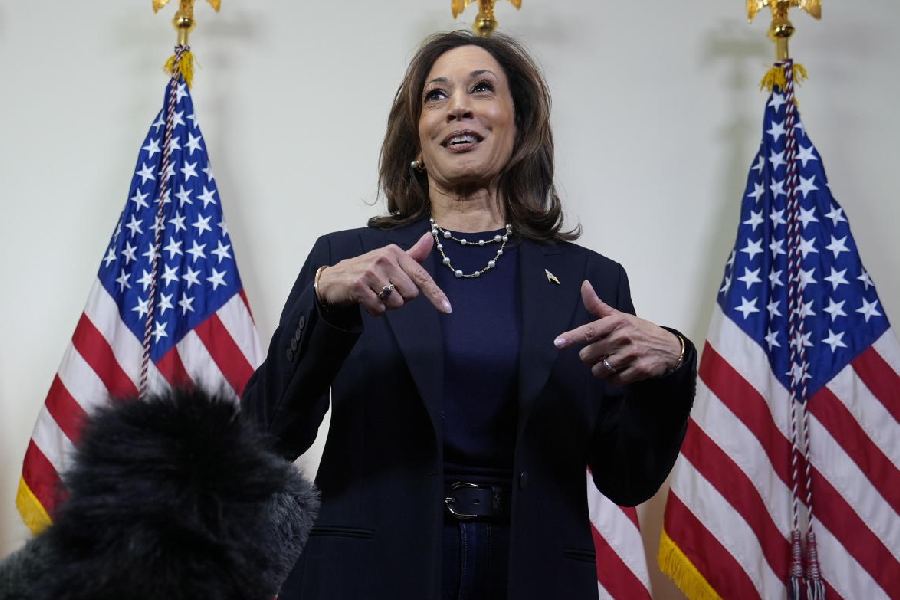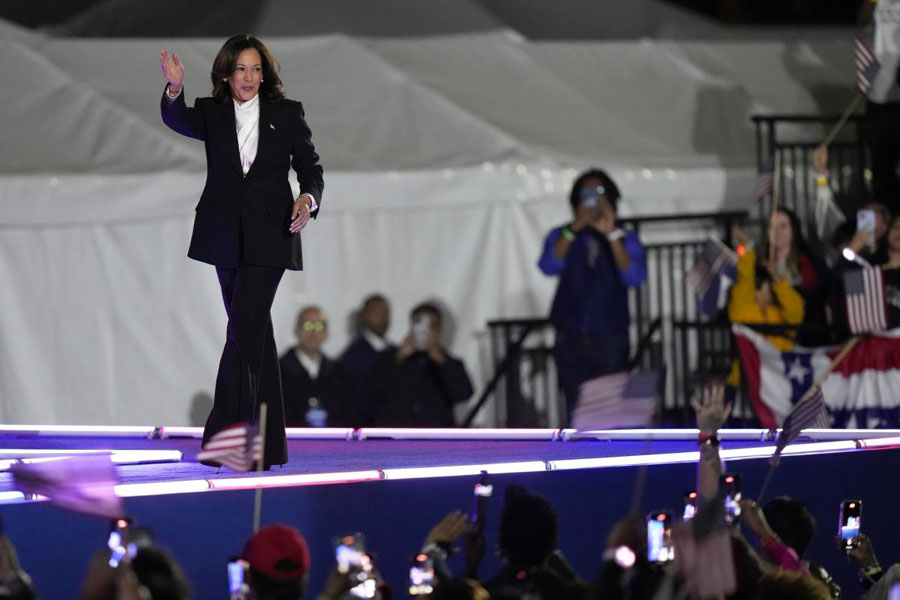As the US presidential election heads for a photo finish, Democratic nominee Kamala Harris, the daughter of Indian and Jamaican immigrants, has been counting on groundswell of support from the Indian-American community in most of the pivotal battleground states.
For a sizable number of Indian Americans, Vice President Harris's race for the White House is a momentous occasion as it is propelling the community into a notable force in the American political discourse.
"It is a matter of pride that a leader of Indian descent is fighting the US presidential election," said Dr Vasudev Patel, general secretary of the Federation of Indian-American Association of Georgia.
Georgia is one of the seven key battleground states and Patel says the Indian-American community could play a significant role in swinging the election in Harris's favour.
"I voted for Trump last time. But this time, I am going to support Kamala Harris," said Saurabh Gupta, a technocrat who grew up in Delhi and is now a resident of Montgomery County in Maryland.
If Harris wins the race, then it will be the first time in US history that a candidate of Indian heritage would occupy the top office of the most powerful country on the planet.
After Harris received the Democratic presidential nomination in August, various Indian-American and South Asian American groups have been engaged in mobilising support for her, including through raising funds.
The number of Indian-Americans residing in the US is around 5.2 million, forming the second-largest immigrant community, and out of them, around 2.3 million are eligible to vote.
Around 55 per cent of Indian-American eligible voters identified as Democrats as against 26 per cent as Republicans, according to a 2024 survey conducted by research organisation AAPI before President Joe Biden pulled out from the re-election bid.
A survey this month by the Carnegie Endowment found that 61 per cent of registered Indian-American voter respondents plan to vote for Harris, while 32 per cent intend to vote for Trump.
It said 67 per cent of Indian-American women intend to vote for Harris, while 53 per cent of men, a significantly smaller share, say they plan to vote for Harris.
Twenty-two per cent of women intend to vote for Trump while a significantly larger share of men, 39 per cent, plan to cast their ballots for him, it said.
A large number of Indian-Americans are also upset with Trump over his immigration policy.
"The US is a country of immigrants and a controversial discussion is going on. We cannot ignore the fact that immigrants do bring value to the US economy," said CEO & Co-Founder of Annoviant, a medical device startup based in Georgia's Alpharetta.
"When it comes to the Indians typically, they are coming here either for education or they come here with education," he said.
In his campaign speeches, Trump promised a radical shift to tighten Washington's immigration policy and vowed to carry out the "largest" domestic deportation operation in American history of undocumented immigrants if he is reelected.
With just seven days left for Election Day, the presidential race remained very tight with both Harris and Trump locked in a dead heat for the popular votes in most swing states.
The final nationwide CNN poll found this week that 47 per cent of likely voters support Harris and an equal 47 would endorse Trump in the elections.
In the final New York Times/Siena College national poll from October 20 to 23, the two aspirants are tied at 48 per cent. The remaining four per cent are yet to decide on their preference.
A separate poll conducted by the Financial Times and the University of Michigan's Ross School of Business showed that 44 per cent of respondents trust Trump to handle the economy as opposed to 43 per cent for Harris.
To win the race for the White House, the successful candidate will have to secure 270 of the 538 electoral votes up for grabs.
The seven key swing states which are seen to be crucial to determining the election results are Georgia, Michigan, Arizona, Pennsylvania, North Carolina, Wisconsin and Nevada.
Except for the headline, this story has not been edited by The Telegraph Online staff and has been published from a syndicated feed.












